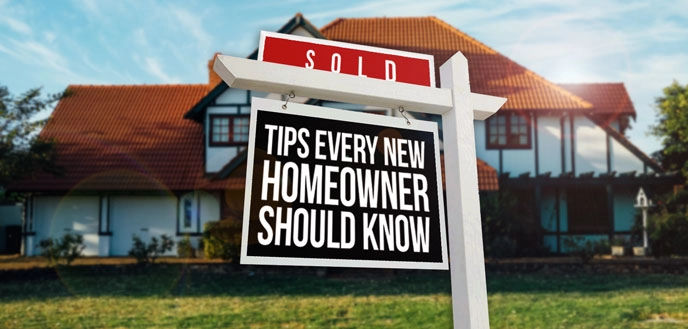New Homeowner Tips:
Essential HVAC System Checklist for First-Time Homebuyers
Why you should be prepared with a new home HVAC checklist. With so many things to consider when purchasing a home, it’s understandable that first-time buyers may overlook the importance of evaluating the home’s HVAC system. However, understanding and assessing a property’s heating and cooling system is a crucial aspect of the home-buying process. A home’s HVAC system directly impacts the comfort, health and energy efficiency of the living environment. Issues with the HVAC system can lead to costly repairs or replacements down the line, affecting the overall value and livability of the home.
By thoroughly evaluating the HVAC system, buyers can identify any potential problems or deficiencies and make informed decisions about the property during the home-buying process. Additionally, understanding the age, condition and efficiency of the HVAC system allows buyers to plan appropriately for maintenance or upgrades, ensuring long-term comfort and cost savings.
Here, the experts at Simons Heating & Cooling explain what all homebuyers should look for when evaluating the heating and cooling system of a potential home:
1. What Type of HVAC System Does the Home Have?
One of the first things to do when evaluating a residential HVAC system is to see what type of system it has. Is it a furnace or boiler? Central Air? Heat pump or ductless mini-split system? And what type of fuel does the system use? Electricity, natural gas and heating oil are the most common sources of heating fuel. Each type of system and fuel has its advantages and disadvantages, so it’s important to know what is used in the home and then research how well each would fit your comfort and your budget.
2. How Old Is the HVAC System?
The age of an HVAC system is a telling clue as to how long it may last and how many repairs it may need. Most heating and cooling systems last about 10-15 years. Though the cost of replacement will vary depending on the type of system, its capacity and efficiency, the average HVAC replacement cost is $6,000 to $12,500.
If the system in a for-sale house is around that age or older, it’s a good idea to try to figure the replacement cost into your purchase offer or plan on budgeting for HVAC replacement after you buy the house.
3. Is the Home’s Heating & Cooling System Still Covered by the Warranty?
An important thing to investigate during a home purchase is whether the HVAC system is covered by warranty and if that warranty remains valid if the house is sold. If the system is covered by warranty, find out how long the warranty lasts, what services are covered by the agreement and what, if anything, the homeowner must do to keep the warranty valid.
While some warranties will remain valid for a certain number of years regardless of who owns the home, that might not be the case for others, so it’s important to check. A way to verify whether the home is covered and for how long is to ask to see documentation detailing the warranty. You may need to ask the current homeowner to view these documents.
4. Has the HVAC System of the Home Been Properly Maintained?
One of the factors that determines how long a furnace, air conditioner, boiler or other heating and cooling equipment will last is how well it was maintained. Seasonal tune-ups by an experienced professional ensure the system is working correctly and efficiently. It’s also a good time to look for signs of wear and tear, and to repair any small problems before they escalate into major breakdowns.
When a potential homebuyer is looking at a property, asking for HVAC maintenance records or about the service history of the unit is always a good idea.
5. What Is the System’s Efficiency Rating (SEER, AFUE, Etc.)?
An HVAC system’s efficiency reflects how much power is required to produce heating or cooling. The less power is needed, the higher the efficiency. This is important because more efficient units cost less to operate. That’s why the efficiency rating of an HVAC system is an important thing for new homebuyers to ask about.
Efficiency is typically measured in a SEER or SEER2 rating for air conditioners and heat pumps. Furnaces and boilers are evaluated using an Annual Fuel Utilization Efficiency rating, or AFUE. The higher the SEER, SEER2 or AFUE rating, the more efficient the unit.
6. Do A Visual Inspection of the System.
It’s important to evaluate the overall condition of the HVAC system. Check the furnace, air conditioner or heat pump, ductwork and thermostat for signs of rust, corrosion or damage. Any of those may indicate neglect or age-related wear and tear.
It’s a good idea to test the thermostat to make sure it functions properly and accurately controls the temperature settings in the home. You also can check the air filters and assess whether they need to be replaced or are properly installed.
7. Get a Second Opinion from an HVAC Professional.
For new homebuyers, selecting a reputable HVAC company like Simons Heating & Cooling to conduct an HVAC system inspection of a prospective home is paramount. The team at Simons can provide a comprehensive assessment of the system’s condition, efficiency and overall performance, offering invaluable insights to inform the home-buying decision.
By getting a second opinion from a trusted HVAC company, new homebuyers can gain peace of mind knowing that any potential issues or deficiencies with the HVAC system will be identified and addressed. This way, they have the information they need to make informed decisions and negotiate with confidence.
Spring is getting closer and closer!
If you haven’t scheduled a maintenance appointment yet, Simons Heating and Cooling can help. Give us a call at (518) 955-1051 to speak to a member of our staff and start the process!
Interested in our Spring promotions?
Discover specials on repairs, maintenance, installations and other products and services here:


